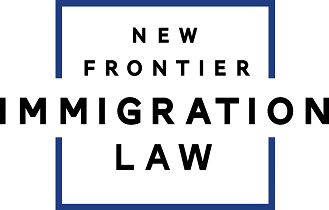
Unfortunately, there are many reasons why a green card application would be denied. Applying for a green card is an important step for many immigrants seeking permanent residence in the United States. However, the process can be complicated, and a green card application may be denied for various reasons.
Understanding why this happens can help applicants avoid common mistakes and strengthen their chances of approval. So, why would a green card application be denied? Denials often result from insufficient documentation, ineligibility, criminal history, or other issues. A Phoenix immigration lawyer can address those concerns early to make the process smoother and less stressful.
Overview of Green Card Applications
A green card application allows immigrants to seek permanent residence in the United States. The process involves submitting a detailed application, which typically includes various forms, such as Form I-130, proof of identity like a birth certificate or marriage certificate, and other evidence to demonstrate eligibility. Applicants must meet specific criteria, such as family or employment-based eligibility, or they may apply through consular processing.
Applicants must also pass background checks and medical examinations, provide evidence of their financial status, and ensure they meet the requirements set by U.S. Citizenship and Immigration Services (USCIS).
Key points about the green card application process include:
- Eligibility requirements. Applicants must prove their eligibility, often through family-based green cards, employment-based petitions, or other visa categories.
- Documentation. Supporting documents such as birth records, financial resources, and proof of an authentic marriage are typically required.
- Medical examinations. USCIS requires applicants to undergo medical evaluations to check for infectious diseases or other health concerns.
- Criminal history. Criminal records, including past immigration violations or issues related to moral turpitude, can impact an application.
Understanding each requirement and providing complete, accurate documentation will help ensure the application has the best chance of approval.
For a free case review with an Immigration lawyer, call
Common Reasons for Green Card Denial
A green card application may be denied for various reasons, many of which are related to eligibility issues, missing documentation, or mistakes during the application process. Understanding these common causes of denial can help applicants better prepare for the process and reduce the chances of rejection.
Some of the most frequent reasons for green card denial include:
- Insufficient Documentation. Missing or incorrect documents, such as birth certificates, marriage certificates, or financial records, can lead to an application being denied. It is essential to provide all the necessary evidence, including proof of relationships and financial resources.
- Ineligibility. Applicants must meet specific eligibility criteria, whether through family-based petitions, employment-based visas, or other categories. Failure to meet the requirements or provide evidence of eligibility can result in a denial.
- Criminal History. Past criminal records, including issues like drug trafficking, aggravated felonies, or involvement in human trafficking, may disqualify someone from receiving a green card. Certain offenses, such as crimes of moral turpitude, can also impact an application.
- Immigration Violations. Previous immigration violations, such as overstaying a visa, can negatively affect an applicant’s chances. These violations can trigger denial or, in some cases, removal proceedings.
- Public Charge. If an applicant is likely to become a public charge, meaning they are expected to rely heavily on public resources or government assistance, their application may be denied.
- Medical Issues. Certain medical conditions, particularly infectious diseases, can lead to denial. Failing to attend a required medical examination can also be a factor in rejection.
These are just some of the common pitfalls applicants face during the green card application process. Taking the time to gather sufficient evidence and seeking legal advice from an experienced immigration attorney can help improve the chances of approval.
What Should I Do if My Green Card Application Is Rejected?
If your green card application is rejected, it can be a stressful and frustrating experience. However, there are steps you can take to address the situation and explore options for moving forward. Here are some possible actions you can take after receiving a green card denial:
Review the Denial Notice
The U.S. Citizenship and Immigration Services (USCIS) will send a denial notice outlining the reasons for the rejection. It is essential to review this document carefully to understand the specific issues with your application, such as missing documentation, ineligibility, or other mistakes.
File an Appeal or Motion to Reopen
In some cases, you may be able to file a Form I-290B, Notice of Appeal or Motion, to challenge the decision. This option allows applicants to appeal the denial or request that the USCIS reopen and reconsider their case if new evidence or corrections can be made.
Submit Additional Evidence
If the denial was based on insufficient documentation, such as a missing birth certificate or financial evidence, providing the required documentation could resolve the issue. A Request for Evidence (RFE) may be issued, allowing you to submit additional proof.
Reapply
Sometimes, it may be best to correct the errors and reapply for the green card. A subsequent application can address the issues that led to the initial rejection, ensuring that you meet all the eligibility requirements and submit complete documentation.
Consult an Experienced Immigration Attorney
If your green card application was denied, seeking the advice of an experienced immigration lawyer can provide valuable guidance. They can help you understand the reasons for the denial and the best steps to take, whether it involves filing an appeal, submitting additional documentation, or starting a new application.
Remember, rejection doesn’t mean the end of your immigration journey. With proper legal advice and a thorough review of your case, there may still be opportunities to obtain your green card.
Our immigration lawyers
A Green Card Immigration Lawyer Can Answer Your Questions Today
If your green card application has been denied or if you’re worried about potential issues, an immigration lawyer can help you understand your legal options. A skilled attorney can assist with gathering sufficient evidence, ensuring your application meets eligibility requirements, and filing an appeal if necessary.
They can also guide you through the green card application process, offering support for challenges like filing fees, immigration interviews, and requests for evidence notices. Whether you are applying for a family-based green card or facing immigration issues, a lawyer can provide personalized legal counsel and increase your chances of approval. Reach out for a consultation today to get the legal support you need for your immigration journey.






